Northwest Coast Indians
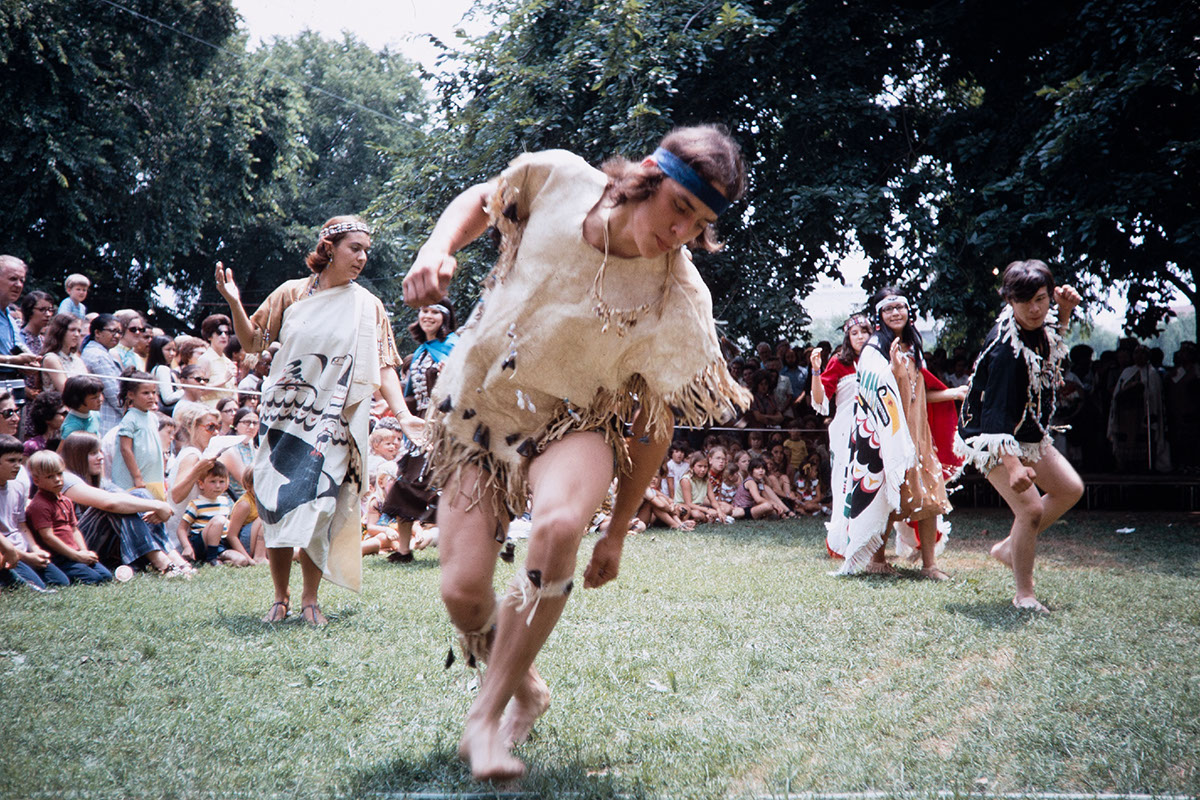
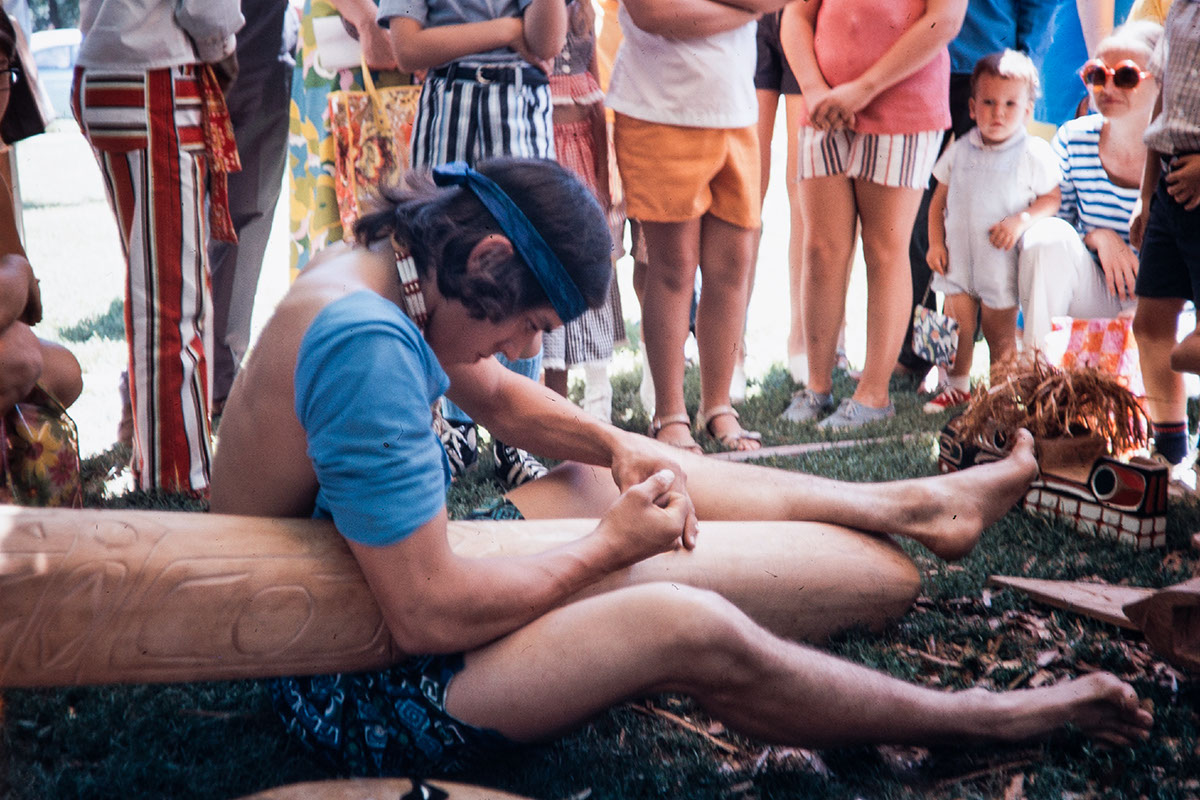
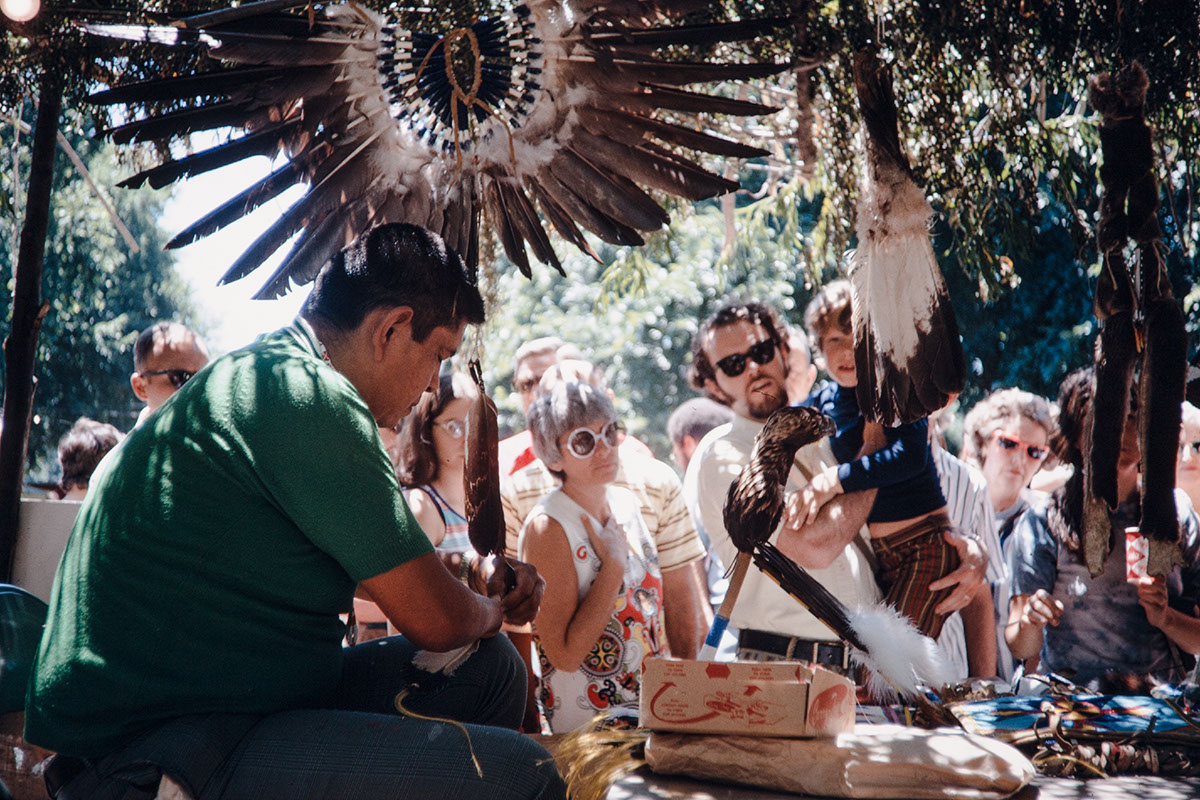
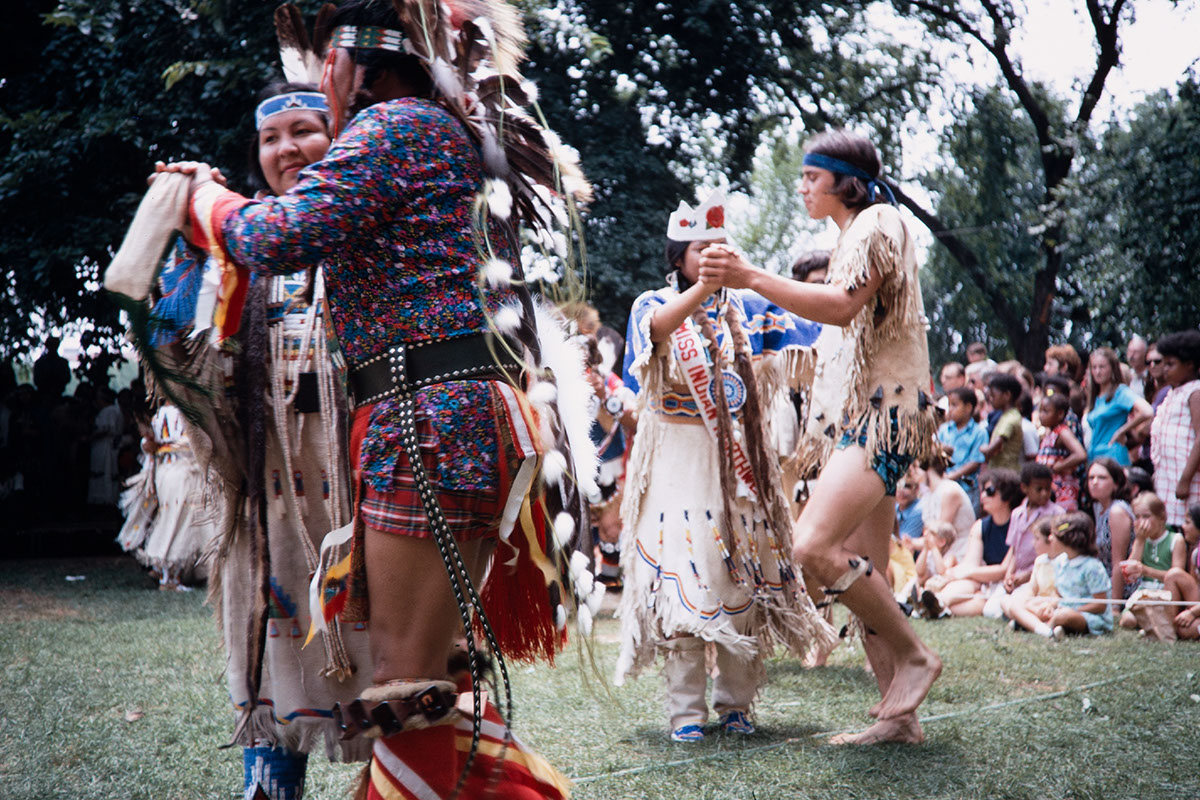

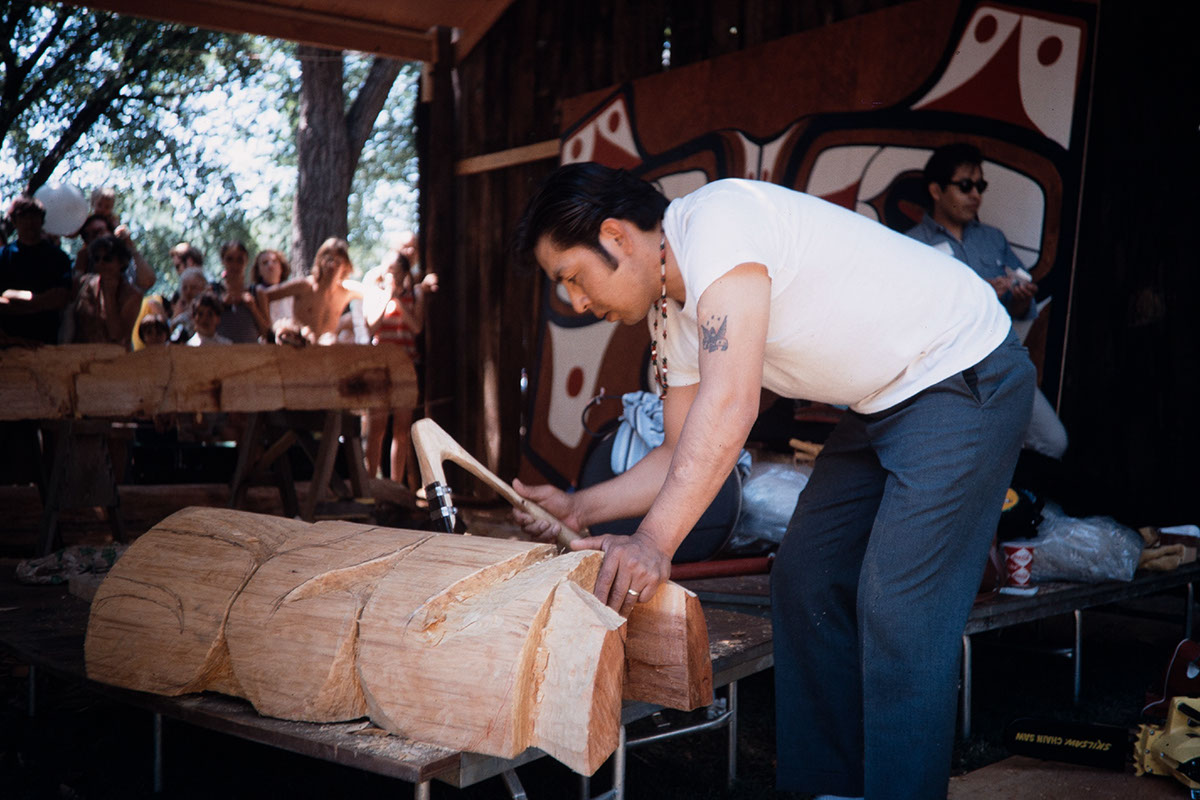
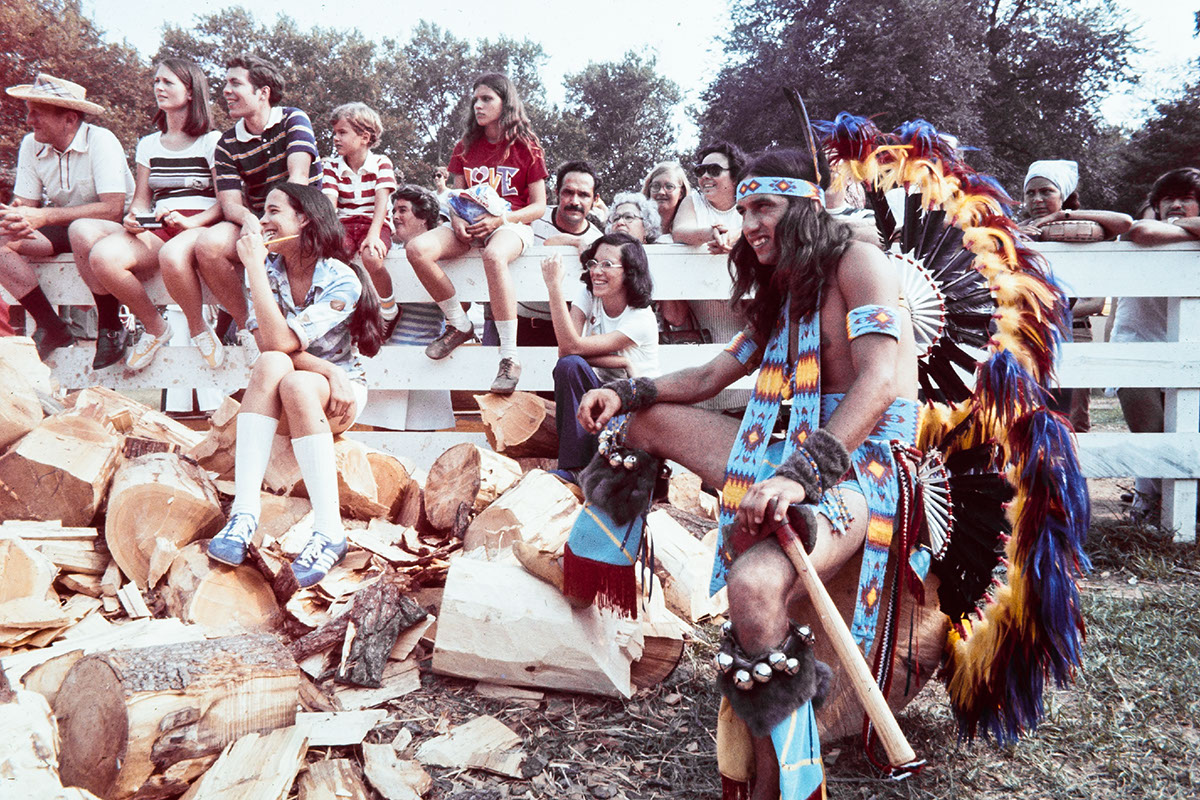
American Indian programming continued at the 1971 Festival with a program devoted to Indians of the Northwest Coast. In this narrow, wet and mild strip of the Pacific Coast from Trinidad Bay in northern California to Yakutat Bay in Alaska, Native peoples created a radically different and original way of life, most readily recognized by its unique and powerful art, a way of life which owed almost nothing to southern influences. This distinct and vigorous cultural type was shared by many hundreds of Indian villages (representing about twenty-five different languages).
Contemporary Northwest Coast traditions were considered to reflect an era when the steep shores of the area were densely wooded; the rivers teemed with fish, especially salmon; and the adjacent ocean contained abundant fish and sea mammals. In 1971, lumbering and fishing were still the major industries for both Indians and their neighbors along much of this coast, and Indians in the States of Washington and Oregon were fighting in the courts to preserve their treaty rights to fish in their accustomed places. Festival workshops allowed tribal spokespeople to discuss both their historical legacies and their current challenges.
The Festival program book pointed visitors to the Smithsonian's collection of Northwest Coast Indian art, some of it permanently exhibited in the National Museum of Natural History. Four totem poles stood near the elephant inside the Mall entrance, while several exhibit cases displayed other objects in the Hall of Native Peoples of the Americas.
Clydia Nahwooksy coordinated the program as the American Indian Program director, with Barbara Farmer as the primary field researcher. The Northwest Coast Indians program was made possible by support from the Alaska Federation of Natives, Alaska Airlines, Alaska State Museum, Alaska State Travel Service, Alaska State Council on the Arts, US Department of Commerce, US Department of Labor, and Tlinglit and Haida Tribal Council.

